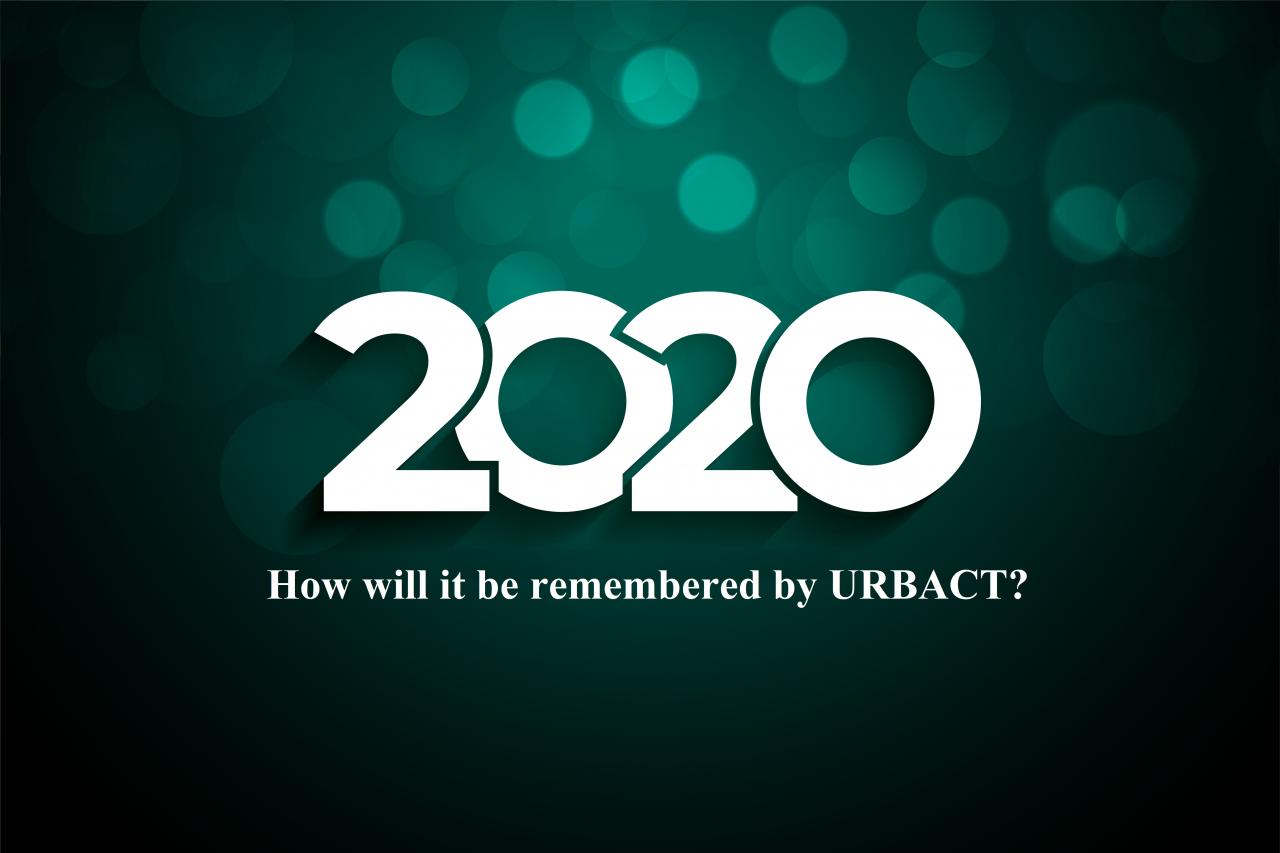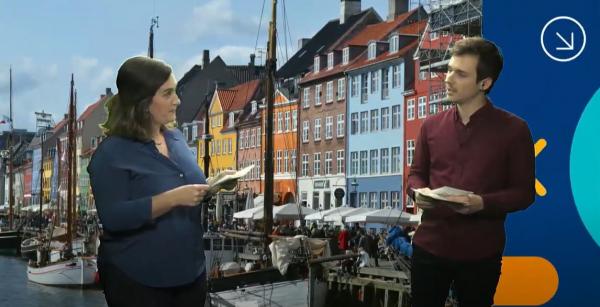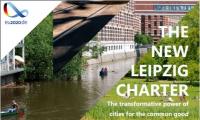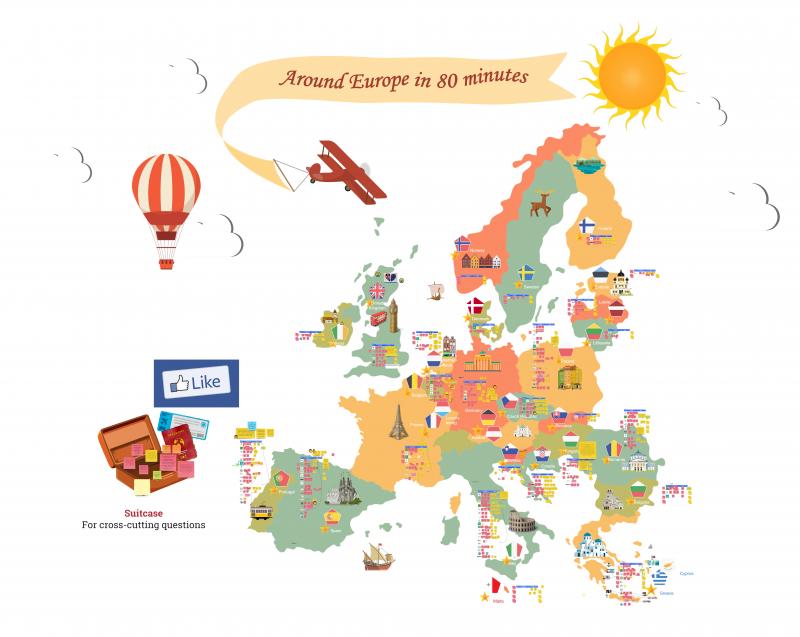
Knowledge Hub Editor Ed Thorpe wraps up the URBACT programme’s main takeaways from 2020 – it was quite a year.
It’s fair to say that 2020 didn’t totally turn out as most of us planned. It’s been a year of major personal and professional challenges. Nevertheless, when I look back on the things we said we’d be looking out for in 2020 at URBACT, what strikes me is how robust we’ve managed to be at keeping up with what needs to be done.
From a programme perspective, Covid hasn’t so much overthrown URBACT’s underlying assumptions, as reinforced their importance. We need participatory and integrated approaches to local sustainable development more than ever. And we’ve written this year about the ongoing urgency of issues such as urban poverty, food solidarity, gender equal cities and the climate emergency in times of Covid.
Furthermore, it’s clear that strength can come from adversity. Lockdowns and the decimation of international travel might once have dealt a body blow to a programme based on transnational peer learning and exchange. But, in many ways, 2020 was the year that brought transnational networking into the 21st century.
URBACT’s first ever e-University
URBACT’s big events are famous for their positive energy and camaraderie - bringing together ambitious city actors in order to exchange, motivate and learn. So it isn’t surprising that many people in URBACT had a real sense of loss when the planned 2020 Summer University in Dubrovnik had to be cancelled.
But necessity is the mother of invention and the outcome was a step change in URBACT’s ability to work remotely on a large scale. URBACT’s first ever e-University was not without its challenges, but is undoubtedly one of the main highlights of this year, opening up a new range of possibilities for the ambition of future online transnational exchanges.

URBACT’s famous Summer University for cities was transformed into an e-University in 2020.
The event was aimed at the participating cities in URBACT’s latest round of Action Planning Networks that kicked off their action planning (Phase 2) in May 2020. But anyone can still benefit from all the tools provided for the development of integrated approaches to sustainable urban development. Check out the URBACT toolbox now; and bookmark the page for when you need those tools later in the year!
Building on 2020 as a year of digital transition for URBACT, the programme has also appointed a set of ‘digital buddies’. These experts are available to all our networks and cities as they look to develop their own capacity to make the most of digital tools in their activities and meetings - from the local to the transnational.
The New Leipzig Charter
2020 will also be remembered for the refreshing of the 2007 Leipzig Charter on Sustainable European Cities under the German Presidency. The New Leipzig Charter sets out an updated vision for sustainable urban policy in Europe based on “the transformative power of cities for the common good”. Adopted in late November, URBACT was delighted to have been able to contribute so constructively to its elaboration.

URBACT was a key partner in the development of the New Leipzig Charter adopted under the German Presidency in 2020.
Check out the videos, reports, articles and city voices linked to the four URBACT City Labs that URBACT organised in collaboration with the German Presidency and others - exploring the key themes of participation, sustainability, integration and place-based approaches.
URBACT now looks forward to continuing to support the capacity of Europe’s cities – both small and large – to put the New Charter into practice and to illustrate the implementation of the Charter’s vision of the ‘just’, ‘green’ and ‘productive’ city.
URBACT as a knowledge hub
URBACT is (hopefully!) best known for its networks of cities working to explore solutions to common urban development challenges. URBACT is about capacity building, expert support, peer learning and stakeholder involvement. But, as 2020 has shown, URBACT is also a key knowledge hub on urban development topics: both as a provider and broker of knowledge.
This year has shown the vitality and value of URBACT’s knowledge development and related collaborations with others. I have already mentioned the excellent collaboration with the German Presidency in the refreshing of the Leipzig Charter.
URBACT also co-led an ambitious project with Urban Innovative Actions (UIA) on cities engaging in the right to housing in Europe. Following three webinars this year on ‘cooperative housing’, ‘housing exclusion’ and ‘fair finance’, watch out for a new joint URBACT-UIA knowledge platform on this topic for 2021!

URBACT has continued to strengthen its role as a provider and broker of knowledge – on topics such as cities implementing the right to housing.
Experts and cities from URBACT have continued engagement with the Urban Agenda for the EU, notably through the Partnerships on housing and public procurement. New in 2020, URBACT is also now directly involved in implementation of 2 of the 11 planned actions of the Partnership on Culture and Cultural Heritage – including building on the work of the URBACT Tourism Friendly Cities and ACCESS networks. Look out for more information in 2021!
Ongoing city networking and peer learning
In amongst these highlights, URBACT has continued to support 46 city networks throughout 2020, involving more than 337 partner cities from 30 European countries (EU-27 + UK, Norway and Switzerland) working together on more urban development topics than I could possibly name!
URBACT’s 23 good practice Transfer Networks (TNs) are right now pulling together the city stories, lessons and outcomes of their three years of activity to explore how an URBACT-validated good practice from one city can be broken down, understood and adapted to the reality in a different city. Having benefitted from a 6-month extension to their activities, the Transfer Network ‘Sharing Period’ is now foreseen for the first half of 2021. Understanding how to effectively transfer good practice is one of the key challenges of European policy and practice in any sector – so keep your eye out for the results!

A recent internal event created this map of the diverse city stories from all across Europe emerging from URBACT’s 23 Transfer Networks.
Meanwhile, the second round of 23 Action Planning Networks (APNs) supported by URBACT III have been moving ahead with their stakeholder engagement and integrated action planning as best they can in the circumstances. They have also been exploring a new aspect for URBACT APNs in the current cycle: the implementation of small-scale innovations. Don’t forget to follow developments in your favourite network by checking out their page on the URBACT website or finding them on social media!
A final word
If you are anything like me, it’s been frankly hard to enjoy 2020 and to keep spirits high at times. And we cannot forget how many of us have been impacted on a personal basis by the difficult events of this year. But 2020 will also be a year that we can look back on with some shared professional pride. Only time will tell, but we may look back and see 2020 as a year that made us stronger and that marked a turning point in our digital – and maybe green – transitions.
That said, here at URBACT, we look forward to seeing as many of you as possible in person in 2021 - and to seeing what more we can achieve together for more sustainable towns and cities in Europe!

